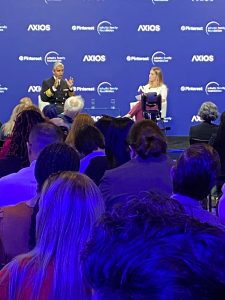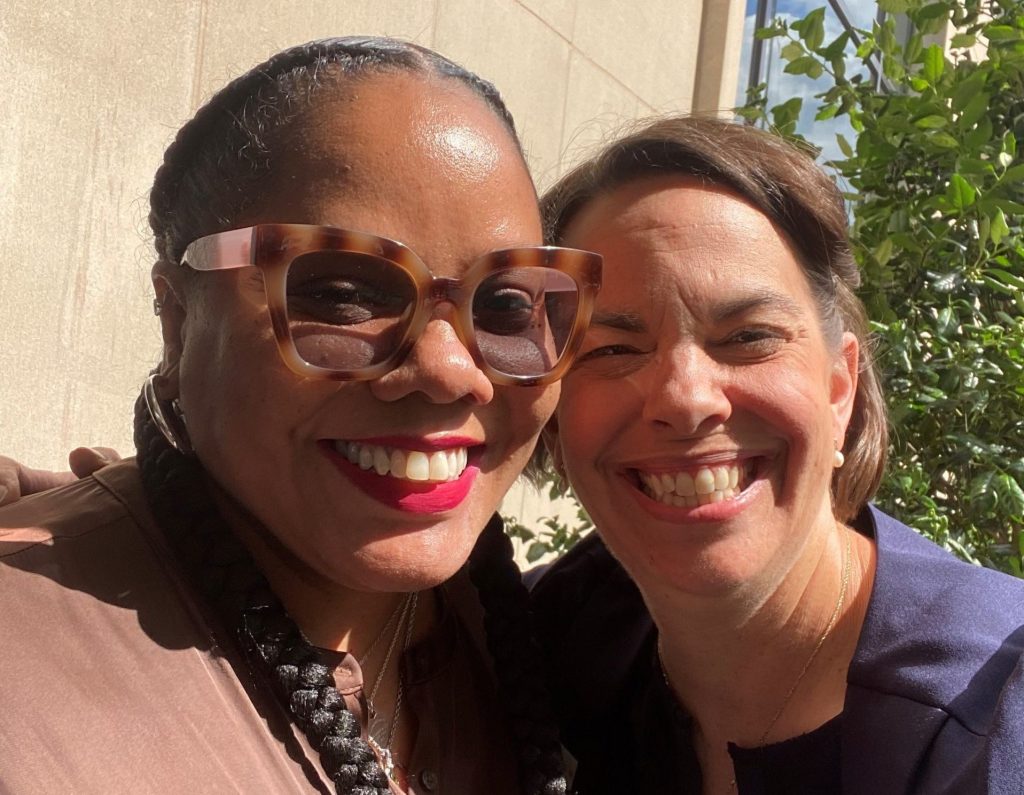Surgeon General’s remarks spark TCP reflections
by Christina Donald, COO
We heard today from U.S. Surgeon General Vivek Murthy that time and again, as he spoke on college campuses, he heard the same question: How can we make connections when it is no longer our culture to talk to each other?
Wow. That really hit home for me. When my late colleague DeVonne and I were first facilitating Wyman’s Teen Connection Project (TCP) at University City High, young people entering the program had very similar sentiments. They would say, we don’t “make friends” anymore. We don’t just walk up to a group of teens and start talking. They asked us questions like “so y’all want us to make friends? That’s weird.”
So, we asked them, how do they connect to other humans? They answered: social media. That led to a great conversation about the power of social media, and its limits. Social media can be a barrier to genuine interactions.
Our young people are big on keeping it “real”. They identify that as an important part of any interaction and engagement they have. In TCP we discuss how it can be difficult to know what’s “real” or not about a person via social media. We talk about how social media can be a barrier to genuine in-person connections. Social media has a place, and can be a powerful tool, but we need to also engage and interact with the world and other people in real life, and in real time
 Dr. Murthy also spoke today about the “mask” people wear, and I almost fell out of my chair. Why? Because there is a lesson in the TCP curriculum where teens examine the different masks we wear, why we wear them, and how they can be barriers to authentic relationships.
Dr. Murthy also spoke today about the “mask” people wear, and I almost fell out of my chair. Why? Because there is a lesson in the TCP curriculum where teens examine the different masks we wear, why we wear them, and how they can be barriers to authentic relationships.
We share with young people that TCP is a place where they can take off their mask and just be themselves. We talk about what needs to be true in our space, and in our interactions with each other, so everyone can feel safe enough to take off their mask and share a bit of their “real” selves. We create agreements, so that everyone feels safe and simply “be”. In the end, the teens tell us they have connections to people and, yes, friendships they never thought they would have.
Learn more about the nation’s first Youth Mental Health Corps: Eleven States Launch New Initiative to Address America’s Youth Mental Health Crisis


